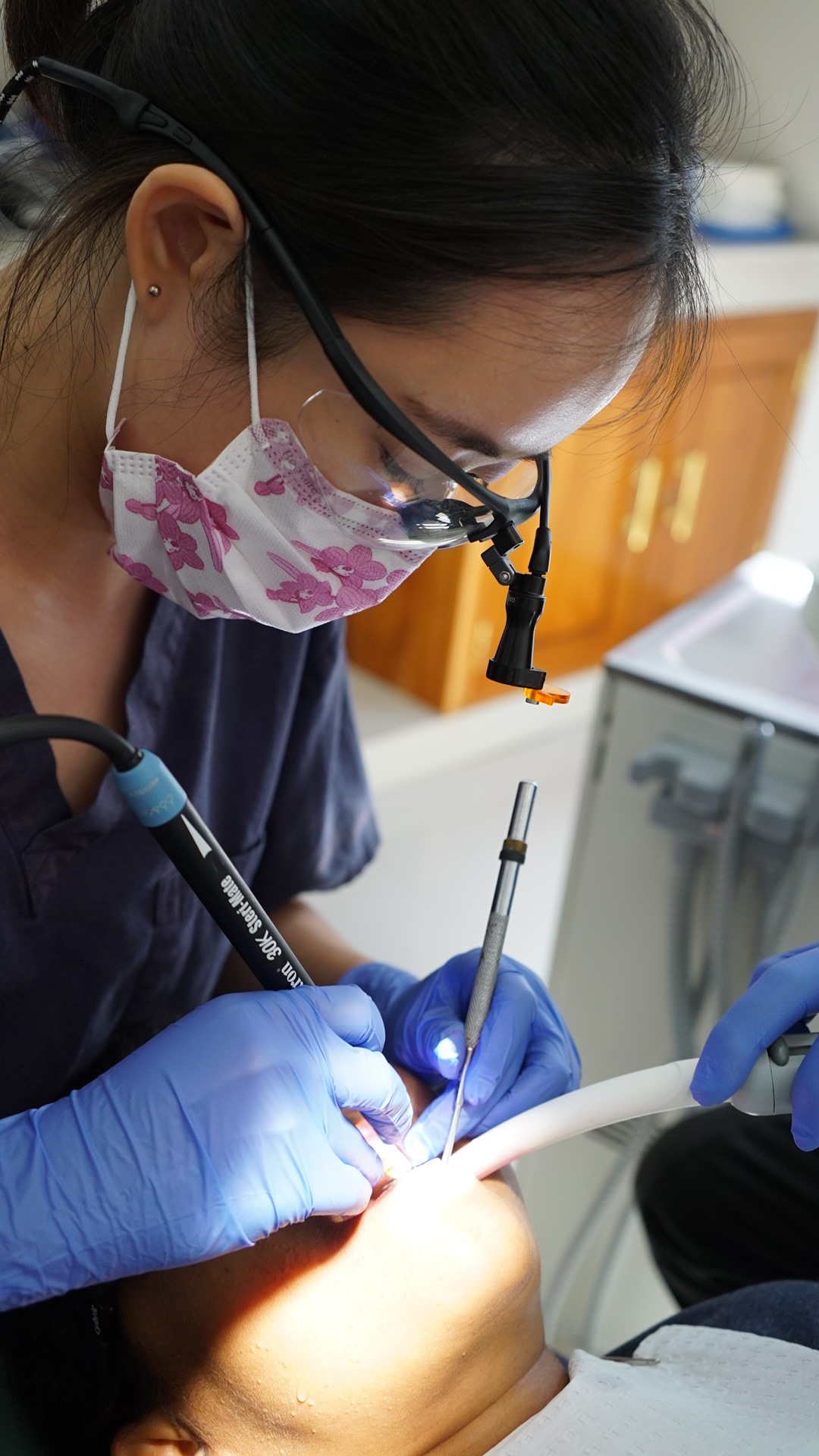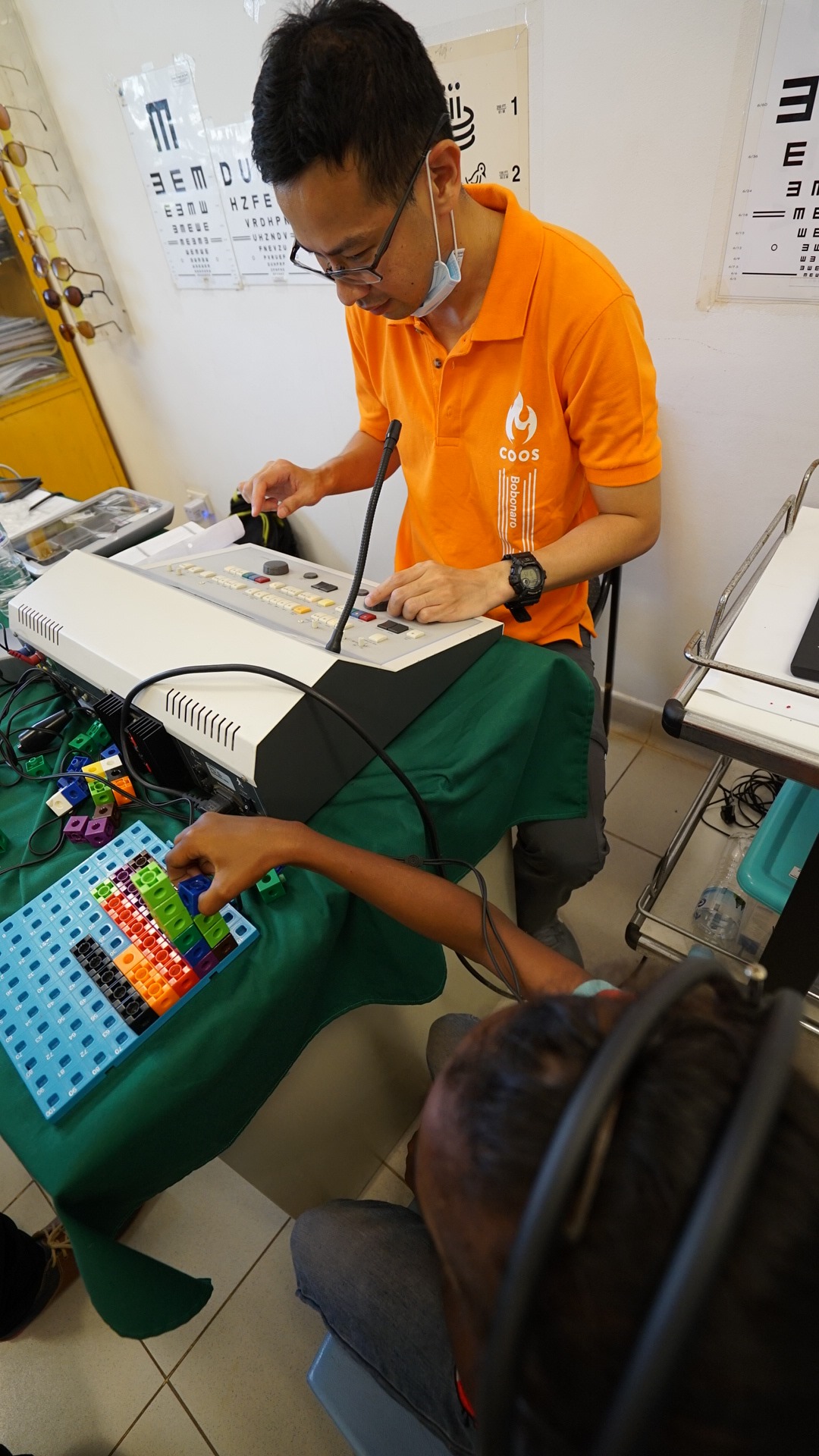In 2019, our team of three doctors and two nurses from the Emergency Medicine Department, National University Hospital, was invited to join Love Timor Project: Bobonaro. Led by Dr Euan Murugasu and Dr Tan Chi Chiu, and supported by Far East Organization, the project was part of a mission by the Church of Our Saviour, Singapore.
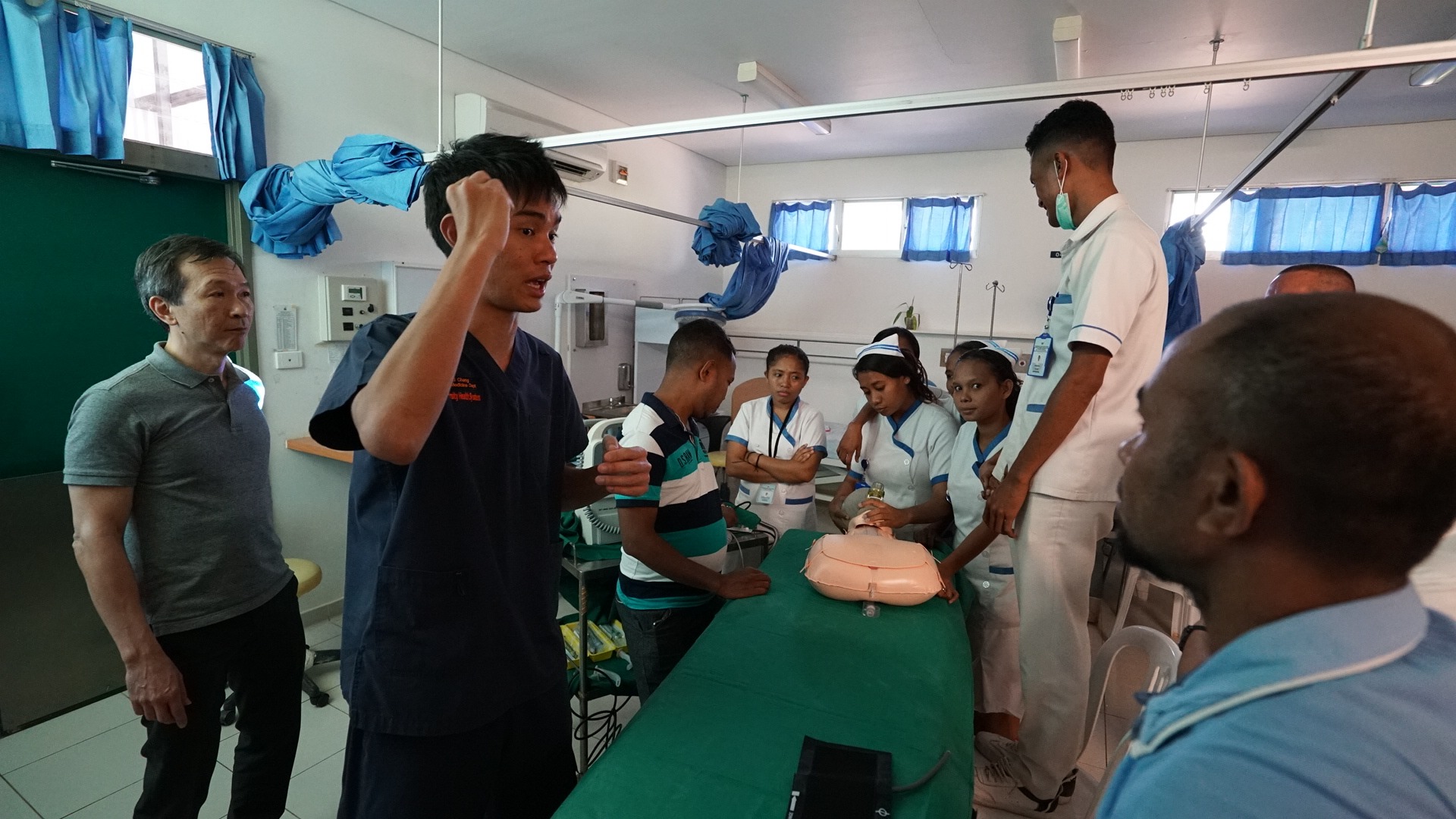
The project first began with a English language teaching programme for the community in 2015. This was followed by a pilot medical project in 2016 which discovered shortfalls in the community's healthcare needs. Subsequently, a reconnaissance trip was organised in May 2019 to understand the health needs and provide support in a sustainable manner.
Partnering Maliana General Hospital (MGH), the main hospital in the district, and Maliana Institute of Science and Technology (MIST), the project aims to commit bi-annual medical missions over an initial three years to allow longitudinal development based on information and experience from each prior mission. In the maiden medical mission done over two weeks, our team joined external dentists, audiologists, and an internist to address:
- Emergency Room (ER) capacity building
- Dental clinics
- Audiology
- Chronic health education
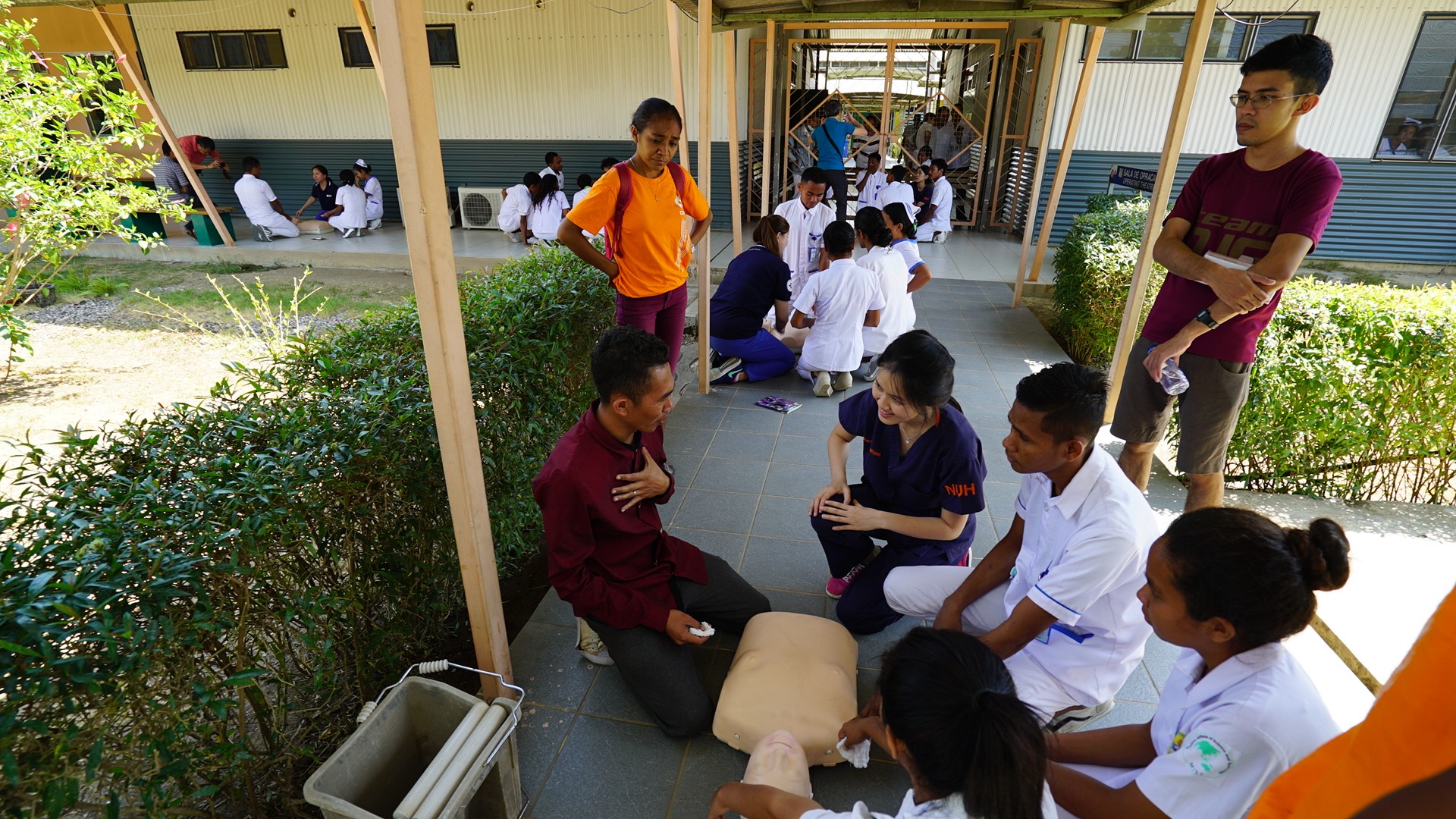
Trip Reflection
MGH doctors shared a story of a patient who was found lifeless in the hills and was conveyed to the hospital in a personal vehicle for one hour without basic life support measures. To make matters worse, the vehicle was stopped for 30 minutes right outside the hospital to allow a flag-raising procession to complete.
This was just one example of emergency responses that the local doctors lamented about. From the team's short visit, it was clear that East Timor needed better land access, pre-hospital systems, ER capabilities, and definitive care. Before all of that, the community sentiment to ignore an emergency out of fear of being blamed for involvement needs to be changed.
With the short time, the team ran a basic life support program, including theory and mannequin-based practical sessions for 25 doctors, nurses, and medical students from MGH. By the end of the week, the community responded by adding their firefighters and police officers to join the training.
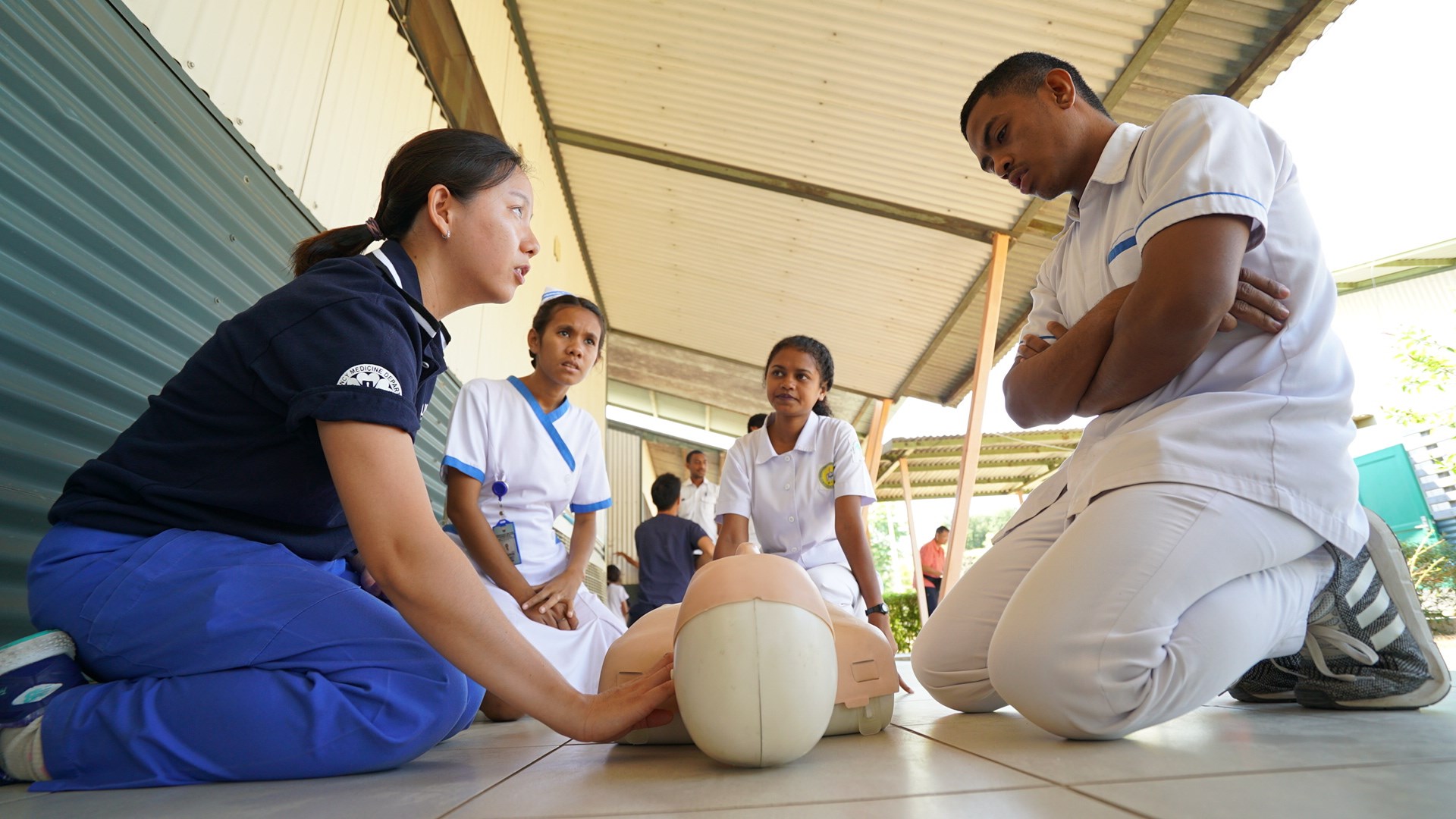
To empower the local nurses to train their own community, we collaborated with MIST to start a basic life support training program using the materials and equipment we brought. Alongside us, the team of audiologists fitted 40 patients with hearing aids and screened around 100 patients, while the dentists ran four full-day clinics.
These were the first steps towards addressing the true health needs of a community like Bobonaro. While a longitudinal perspective has been adopted via the capacity building and training of trainers for basic life support, hearing-aid maintenance, and audiology and dental education, Bobonaro needs more than just individuals from a few invested departments. She
needs a transformation across the closely linked departments that make up a healthcare system, and her people will live better as a result.
How you can make a difference
While a transformation in the healthcare system at large will take time, we hope to continue supporting to provide training and education to equip the local communities with healthcare knowledge and empower them to take better care of their health and that of their loved ones.
Your generous support for the medical mission will go a long way to make a difference to the healthcare needs of the people of Bobonaro. Please contact [email protected] for more information.
(This article contains an addendum in the introductory first paragraph made in April 2025 which elaborates the external parties who had invited our team)




